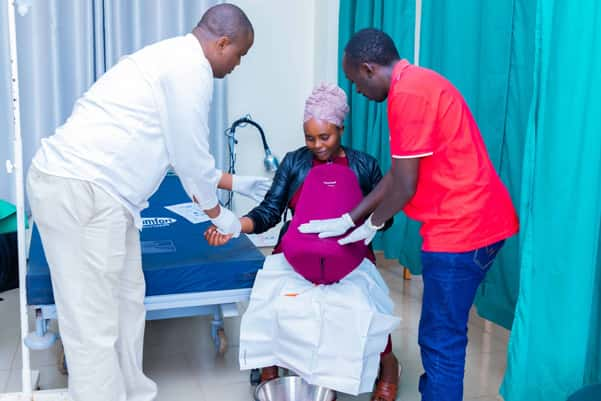Reducing maternal and neonatal mortality in Rwanda


As part of a UNFPA led program that is helping to incorporate simulation training into Rwanda’s nursing and midwifery education system, eleven institutions in the country have received MamaBirthie and MamaNatalie Buy One, Gift One simulators. The aim is to improve quality of care by enabling more hands-on training, in turn reducing maternal and neonatal mortality.
One facilitator who has received those units, and is actively providing training using them, is Immaculate Mukandepandase. Immaculate works at Kibogora Polytechnic in the Western Province and has shared the impact the Buy One, Gift One units are making.
- Immaculate Mukandepandase
Kibogora Polytechnic
“It was not easy for the facilitator or the students as the models we had to demonstrate and practice on did not make it easy to show required skills. We struggled to demonstrate cervical dilatation; to teach them about fetal position; to help students understand how to manage PPH or to manually remove the placenta. Before we received the Buy One, Gift One units we just had to explain what would happen to students. Now we can show them the reality. This means when students arrive in clinical placements they have more skills and this reduces misdiagnosis and mismanagement, which contribute to maternal and neonatal mortality and morbidity.”
“The units have been included in some specific in-service trainings, including the Helping Babies Breathe and Helping Mothers Survive programs. We have, of course, used them a lot for pre-service training as this solves the challenge of graduands only developing theoretical knowledge without skills.”
“Yes, the skills training has resulted in better patient care. We know that there are many success stories from midwives, both in-service and supporting as pre-service, who have saved many women’s lives by safely removing the placenta. We also know babies have been saved thanks to the Helping Babies Breathe program. We have had many students saying how they are grateful to the simulation training as it has helped them to know exactly how to diagnose and manage complicated conditions.”
Learn more about the work to adopt simulation training in Rwanda.